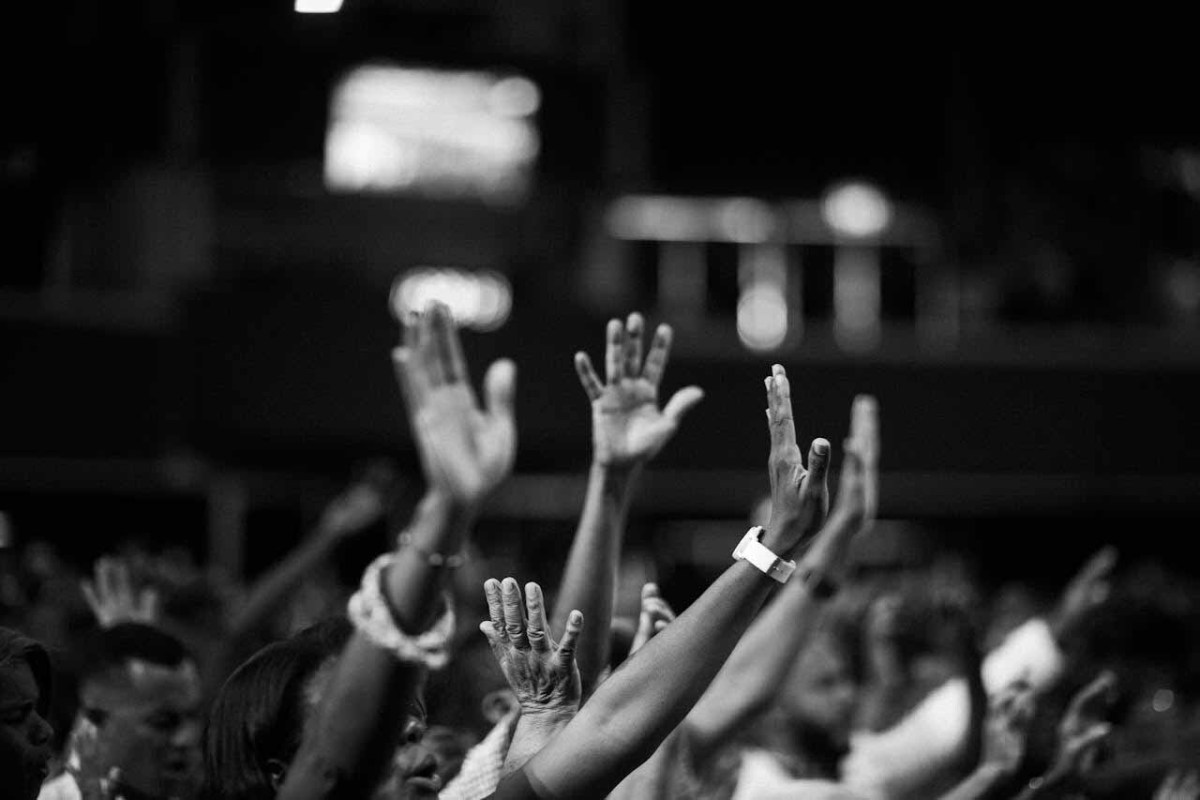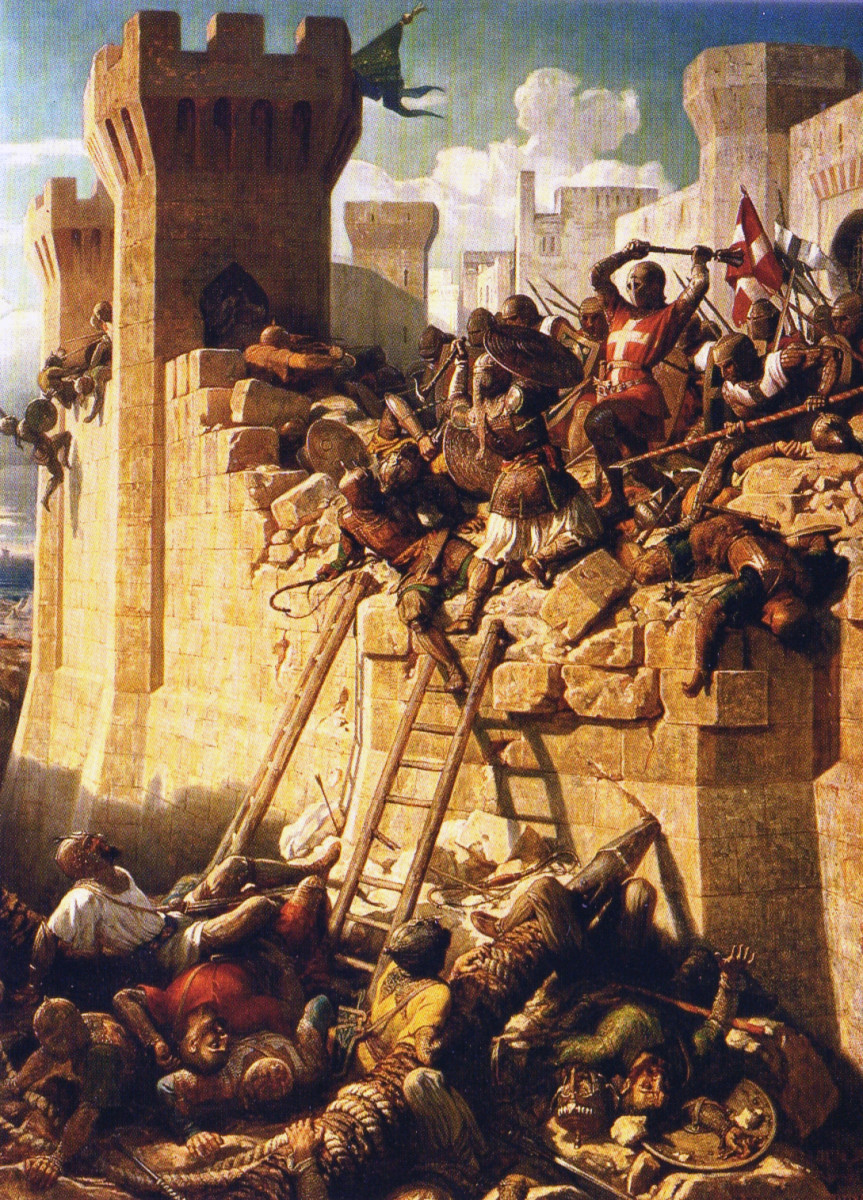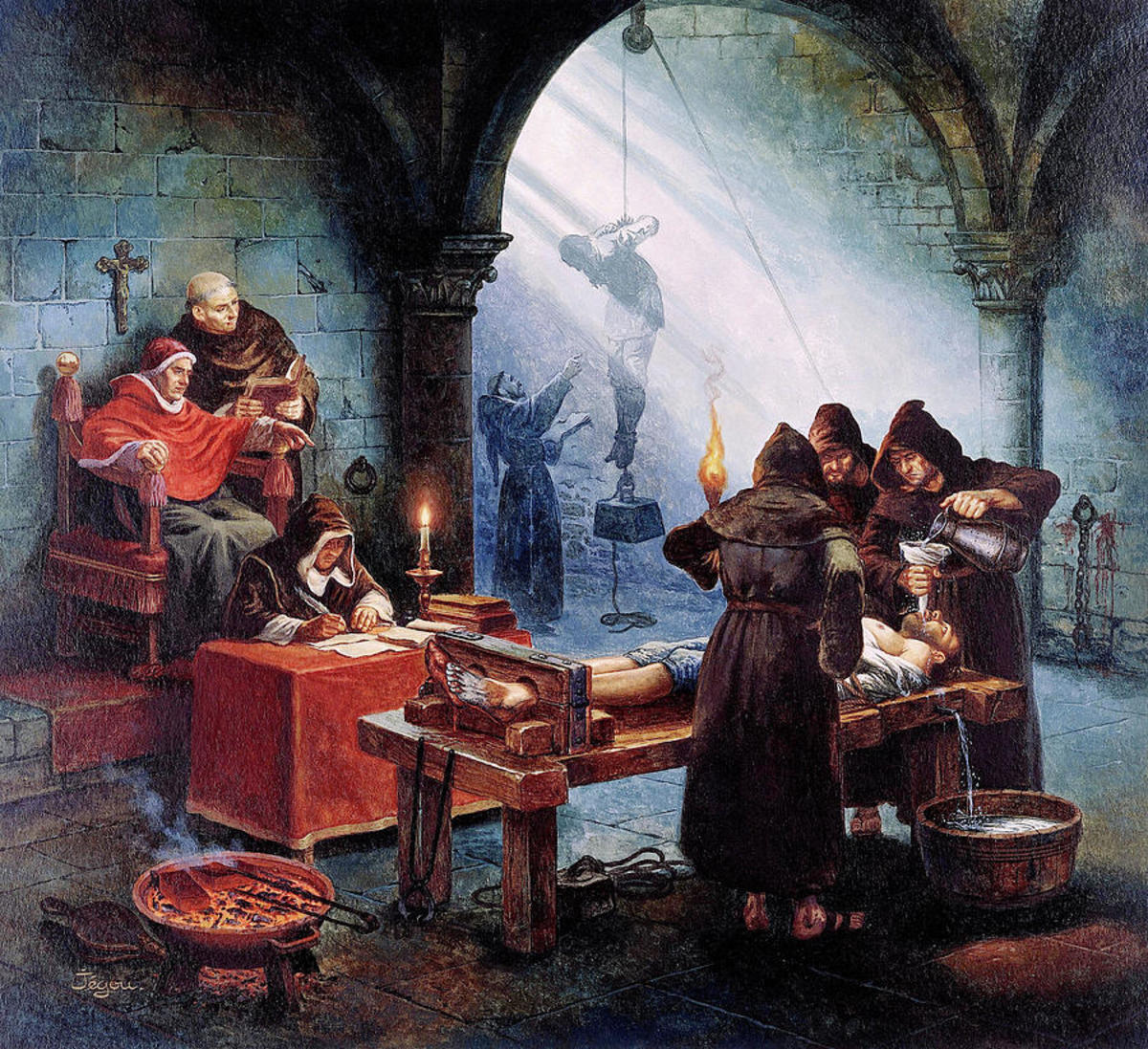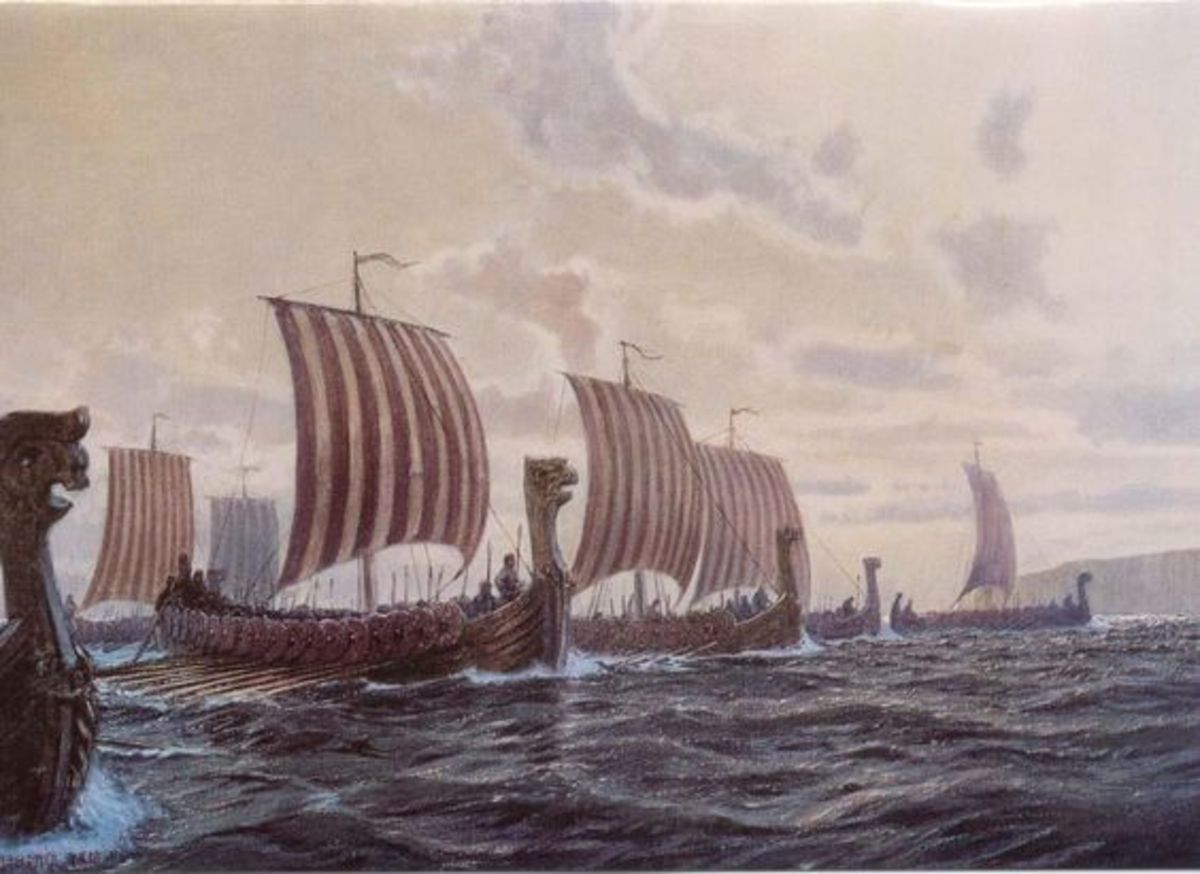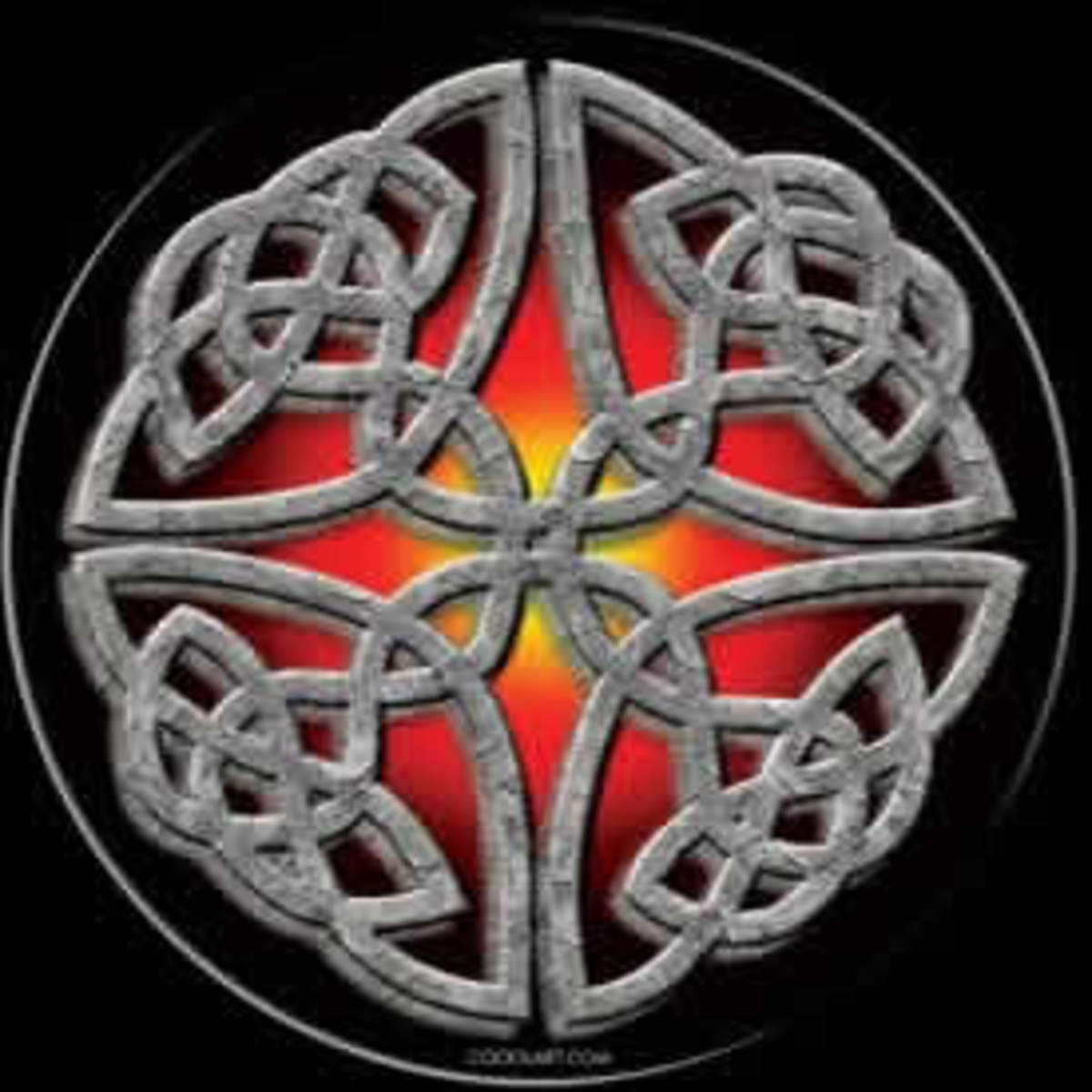Pope Urban II' Religious Motives for the Crusades
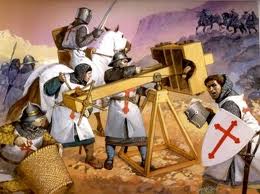
What did Urban II seem to think a crusade was?
It cannot be fully determine what Urban II thought a crusade was using only the primary sources on page 25-46 of The First Crusade . To understand what Urban II thought a crusade was, one has to first determine his motives for a crusade. His definition of a crusade is contingent upon his motives. The true motives of Urban II are not clearly lain out in these sources either. However, what Urban II wanted people to believe were his motives are easily found. At first glance, it would appear that Urban II had two main motives, one being to join the Christian people together and the other, to fight the gentiles, or Turks, for the defense of Christianity and Jerusalem. It seemed that he believed that a crusade was God’s way of freeing Jerusalem, God’s inheritance to his people; ending the bloodshed between Christians by finding a common enemy; saving the Byzantine Church; and reuniting the Catholic and Byzantine Churches, each equally and complimenting the other. But, when one reviews the sources further, one finds that the underlying language used makes it evident that Urban’s main mission was the freeing of Jerusalem, therefore, he would think that a crusade was a form of defense of Christianity by freeing its holy land.
The strongest evidence in support of Urban’s belief that a crusade was God’s way of freeing Jerusalem is evidenced in four of the actual translations of Urban’s letters as well as confirmed by Lambert of Arras in The Privilege of Urban to the Pilgrims.
First is Urban’s Letter to the Faithful in Flanders, December 1095 (42). While it appears that Urban’s main concern over the “barbaric fury” that had “afflicted and laid waste” the churches of the Orient and urged the princes to devote themselves to free the churches of the East, he actually refers to the servitude of its churches and the Holy City of Christ, meaning Jerusalem, as blasphemous. His request may appear to be for all the churches of the East, but by using the word “blasphemous” to refer to the taking of Jerusalem, he is indicating that the freeing of Jerusalem is top priority.
Second, there is reference in Urban’s Letter to His Supporters in Bologna, September 1096 (44), wherein he stated that those who go to Jerusalem “for the good of their souls and the liberty of the churches…will be relieved of the penance for all their sins…” The main point of this statement was that while it may please the Church that some people go to Jerusalem, those people should do so with the right intent, which is for the good of their souls and the liberty of the churches. In this address, Urban leads the listener to believe that going to Jerusalem will free all of the churches.
Third, in Urban’s Letter to the Monks of the Congregation of Vallombrosa, October 7, 1096 (44-45), Urban addressed the monks’ desires to go to Jerusalem “with the good intention of liberating Christianity”. Further, Urban confirmed the use of knights to go on the expedition to Jerusalem to “restrain the savagery of the Saracens by their arms and restore the Christians to their former freedom”.
Fourth, the strength of the message of freeing Jerusalem and Christianity is in Urban’s Letter to the Counts of Besalu, Empurias, Roussilon, and Cerdana and Their Followers (between January 1096 and July 1099) (45-46). The determined language or ordering the church of Tarragona to make a “vigorous effort to restore it in every possible way for the remission of sins” not only entices the listener to do so to only remit his sins, but is an order to vigorously crusade. Urban reiterates what a “great defence it would be for Christ’s people and what a terrible blow it would be the Saracens if, by the goodness of God, the position of that famous city were restored.”
Fifth, evidence of Urban’s main motive to free Jerusalem is evidenced in The Privilege of Urban to the Pilgrims (37). This is located in the collection associated with Lambert, Bishop of Arras, who was one of Urban’s closest associates and as such, gives more weight to this writing than other third person documents reviewed. It states, “Whoever goes on the journey to free the church of God in Jerusalem out of devotion alone, and not for the gaining of glory or money, can substitute the journey for all penance of sin.” Urban’s motives are made clear by Lambert as one of his close associates and it can be assumed that Urban confided in him at least to some degree.
While Urban II may have had intentions to end the bloodshed between Christians by finding a common enemy; to save the Byzantine Church; and to possibly reunite the Catholic and Byzantine Churches, his first and foremost concern was for the freedom of Jerusalem.
What did Urban think would motivate his audience to go on crusade?
Urban II believed that there were several motivations for his audience to go on crusade. Urban continually makes reference to defending Christianity by defending the churches in the East and especially, Jerusalem. However, it appears that Urban knew human nature and realized that the motive to save the church alone were not enough to begin or sustain a crusade. Urban used the selfish desires of people, mainly their desire of their own physical safety and comfort as well as their spiritual repentance and salvation, in an attempt to convince people to join the crusade. Ironically, at the same time, these were the desires that he preached against. Urban employs rhetoric and misinterpretation of the Bible to accomplish this goal.
The implications of fighting for personal safety and comfort came in The Speech of Urban: The Version of Robert of Rheims (26), herein Urban addresses the Franks as the race chosen and beloved by God and speaks of an “accursed race, a race utterly alienated from God” who has invaded the lands of Christians (27). He explains the atrocities that this accursed race has committed such as depopulation, cruel tortures, entire destruction of the churches of God, using Christians for the rites of its own religion, defilation, blood of the circumcision spread upon the alters, pulling out intestines and rape of women, among others. This immediately produces fear in the listener. Urban then called on the audience to act, quoting scripture to those who would question action, “He that loveth father or mother more than me, is not worthy of me”. He further quotes that everyone that forsakes his self, houses, fathers, mothers, wife, children, land and the like will receive “an hundred-fold and shall inherit everlasting life.” This promotes guilt to all those that question action while calling on them to determine their loyalties (28). Urban further states rather than murder each other or wage war against the other, they should “Enter upon the road to the Holy Sepulchre; wrest that land from the wicked race, and subject it to yourselves. That land which as the Scripture says, ‘floweth with milk and honey,’ was given by God into the possession of the children of Israel” (28). Urban is stating that the audience needs to get its priorities straight and save Jerusalem because “Jerusalem is the navel of the world; the land is fruitful above others, like another paradise of delights.” Urban also alludes to Jerusalem as being the home of the Redeemer of the human race being held captive by his enemies. This tactic obviously works because they cry out, “it is the will of God!” (28)
In The Speech of Urban: The Version of Baldric of Dol (29), after speaking of the deep sorrow felt over the “scoured, oppressed, and injured (brothers) in Jerusalem, and continuing to lay out the evils of the Turks, Urban basically claims that sin of God’s people, the Christians, exists among them. He states, “You, girt about with the badge of knighthood, are arrogant with great pride; you rage against your brothers and cut each other in pieces.” (31) Urban adds that they oppress children, plunder widows, commit homicide, sacrilege and rob each other’s rights, but that they have a choice, to either lay down the “girdle of such knighthood, or advance boldly, as knights of Christ, and rush as quickly as you can to the defence of the Eastern Church.” This really is not a choice to Urban. He continues by stating why the Franks should defend the Eastern Church. The defense should be because it is from whom the “joys of your whole salvation have come from who poured into your mouths the milk of divine wisdom, who set before you the holy teachings of the Gospels. (32) Further, they should not shudder at taking on this task; they should shudder at raising a violent hand against Christians. Urban claims charity to risk your life for your brothers and states, “for it is better for you to die in battle than to behold the sorrows of your race and of your holy places”. (32) In essence, Urban’s theme is that the Franks have been guilty and must repent and that repentance comes from fighting the true enemy of God, which he states may include martyrdom. They should not be afraid of dying, but embrace the opportunity to do so.
This theme of salvation, or the redemption from sin, is evident in every source read. He speaks of God’s relationship to the Jews (33), the relationship between Jews and Christians and the inheritance of Jerusalem as a holy land and reminds the audience of the great suffering of those who desire to see the holy land (34). In The Privilege of Urban to the Pilgrims (37), it is pointed out that whoever goes to Jerusalem to free God’s church and does so not for glory or money will be able to substitute the journey for all “penance of sin”. Likewise, in Urban’s Letter to the Faithful in Flanders, December 1095 (42), Urban speaks of such an undertaking (freeing the churches) as “a preparation for the remission of all their sins.” In Urban in Anjou, Lent, 1096 The Chronicle of Fulk le Rechin , it is stated that those who go to Jerusalem “in order to hunt the pagan people who had occupied this city and all of the lands of the Christians as far as Constantinople” would have a “seventh part of the penances” remitted. (43) Finally, loyalty to the catholic faith even in the “midst of schismatics and heretics” requires following the “path of truth” in Urban’s Letter to His Supporters in Bologna, September 1096 (44). Urban states that it is not the beginning of a task that results in salvation but the perseverance in lasting through the end (continuing the crusade).
Urban used the individual’s need for personal safety and comfort, redemption of sin and spiritual salvation to gain support for the crusade into Jerusalem. He does this under the guise of saving the churches of God and particularly Jerusalem, but this alone may not have worked. Urban chose to give his audiences something (redemption of sin and spiritual salvation) in exchange for their loyalty to the church and God.



